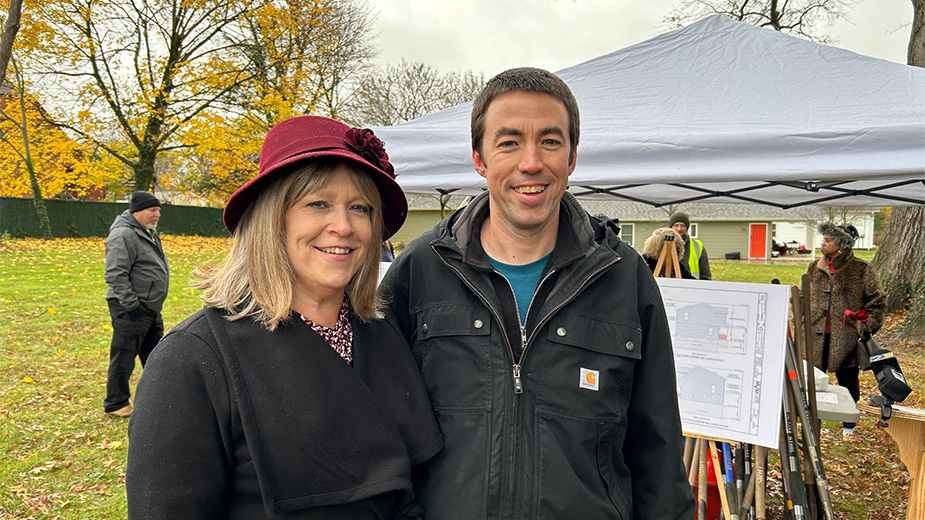Judge OKs Sale of Steward’s Massachusetts Hospitals
YOUNGSTOWN, Ohio – The sale of six Massachusetts hospitals operated by Steward Health Care System, for a combined $343 million, was approved Wednesday by U.S. Bankruptcy Judge Christopher Lopez, who called it the right thing to do with sound business justification.
Approving new owners for these hospitals clears the way for selling Steward’s local hospitals – Trumbull Regional Medical Center in Warren, Hillside Rehabilitation Hospital in Howland and Sharon Regional Medical Center in Sharon, Pa. During a lengthy hearing conducted in person and remotely, no mention was made of the local hospitals. But a big obstacle was removed when the judge denied an objection by Steward’s priority secured lenders.
The six Massachusetts hospitals are part of what Steward designated the “first round” of hospitals to be sold, a cluster that includes the local hospitals. Lopez pointed out there were no better offers on the table, and the commonwealth of Massachusetts and the U.S. government offered no objections.
Lopez mostly noted that Steward no longer has money to operate the hospitals, and Massachusetts has agreed to provide another $42 million to keep the six hospitals operating through Sept. 30, when the deals are expected to close.
“There are real people in these hospitals right now,” Lopez said. “There’s no greater business justification.”
Locally, purchase proposals have been made by Western Reserve Health Education Inc., through the Warren City Hospital Inc. group, to buy the Trumbull hospital, and by Meadville Medical Center in Meadville, Pa., which has offered to operate Sharon Regional.
Over the weekend, Trumbull Regional announced it was off EMS diversion and both Trumbull and Hillside were accepting new patients again, with the efforts to close the hospitals paused. The notice of closure was issued Aug. 21 and was scheduled for completion Sept. 20.
Arguing at the hearing against the sale of Massachusetts hospitals were the FILO priority secured lenders, which provided the $225 million in debtor-in-possession (DIP) financing to keep Steward afloat and operating in Chapter 11 bankruptcy.
Michael Price, the attorney for the lenders, objected on several fronts, including the lack of any money allocated from the sale proceeds going to the FILO lenders despite them holding at least $30 million in collateral in the hospitals.
Price argued that money from the $343 million aggregate purchase price of the six hospitals will only benefit Medical Properties Trust, Steward’s landlord. Additionally, he said the lenders did not believe themselves secondary to other obligations such as $40 million in unpaid paid time off that Steward proposed be paid to the Massachusetts hospitals’ employees.
“We emphasize greatly with [Steward]. We emphasize with the secured lender to the landlord. We understand this is a tough situation. We would love to see it resolve,” Price said. “But it can’t be resolved at the expense of eviscerating hard-won bargained for protections that we received in court orders or fundamental provisions and protections that secured lenders are entitled to under the bankruptcy code,” he told the court. “We don’t want this sale to blow up unless it has to, and the reason it has to is because it relies on parties essentially eviscerating the rights of the secured creditors.”
The FILO lenders may not be entirely left out. Lopez ordered $17 million from the Massachusetts sales proceeds be set aside until he can read through the 386 pages in the DIP agreement and properly rule on distribution. He indicated the lenders may get some of it.
The sale of the Massachusetts hospitals involved the two Holy Family Hospitals in Methuen and Haverhill, sold to Lawrence General Hospital for $28 million; Saint Annes Hospital in Fall River and Morton Hospital in Taunton, sold to Lifespan of Massachusetts Inc. for $175 million; and Good Samaritan Medical Center in Brockton and St. Elizabeth’s Medical Center in Boston, sold to the Boston Medical Center for $140 million.
Scheduled next week is a hearing regarding the proposed sale of Steward’s Florida Space Coast hospitals as well as its agreement with Medical Properties Trust, the real estate investment firm that owns Steward’s properties and would operate the hospitals until buyers are found.
While hashing out sales of hospitals elsewhere is dominating the bankruptcy court’s docket – for now – the situation with the local hospitals remains fluid.
One creditor, Edward Lifesciences LLC, filed court papers Tuesday that stated the company has attempted to remove its property – certain medical inventory including hemodynamic monitoring and balloon catheters – from Trumbull Regional, but has been unable to do so.
Copyright 2024 The Business Journal, Youngstown, Ohio.



